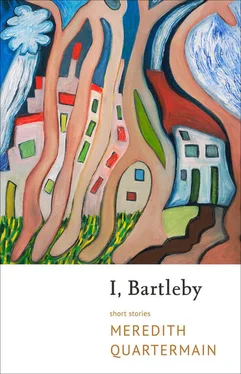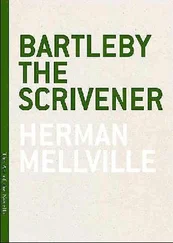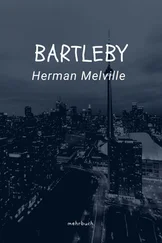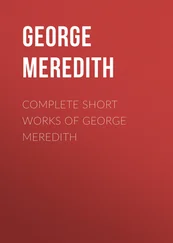In which dictionary would She/I be a word? Would it be R’s? Or the Cleopatra girls’? The bookstore man doesn’t have Rosmarie Waldrop. There’s a big conference here tonight with someone she’s never heard of. Who’s that? He’s into men’s stuff, he said, handing her the book. She/I opens it at random, reads: “woman is the gateway to judgment and hell.” Repeats it to bookstore man, adding, I don’t think this is really me. It doesn’t say that, he says, that’s not what it’s about. Someone else asks for Rosmarie’s books — he really likes The Reproduction of Profiles . Yeah, bookstore man says, the lady poets are really into psychobabble. She/I wonders, Is this R’s idea of stirring the pot? Anger and despair to write with, bumping hunks of stewed meat into soggy carrots.
Eating portobello mushrooms in the Full Moon Cafe, Rosmarie tells She/I her next book explores dialogues that confuse male and female. She doesn’t think Irigaray is right about a feminine language — what good does it do to call open form feminine?
She/I eats beans and sweet corn pancakes at the Harvest restaurant with Norma Cole. What to do about G’s objective reality? But we are writing about reality, Norma says, one that no one’s noticed. Don’t be polite. Write what embarrasses you, drive it against constraint. She/I must get a bucket of magnetic letters. Post them one at a time. What does each mean to I/She? What does I/She want from it? From them? She/I must make ten copies of first and last pages of a favourite book, black out the words she doesn’t want; each day do it again — black out words — which ones does I/She really want?
She/I sits on the floor of the crowded lounge for sudden unplanned talk — Barbara Guest, her book Seeking Air . The poet almost falls before reaching her chair. She doesn’t know how to start. What do the students want? They don’t know either. We have a lot of trouble finding ourselves in the world, she says, and that is what poetry’s about. Context is not an exterior — it’s an emergence, even an emergency.
Six years later She/I translates poems by R. Each of her poems copies the exact number of syllables on each line of his, each of her lines copies the exact stress pattern of each of his. Only the words differ. Ten years later, She/I uncovers R’s poem “Translator: A Tale” enfolding a story of Attis, his brain stung by Cybele, slicing off cock and balls, manhood slipping out of him with the blood that will be violets, he becoming she to beat her drum with soft white fingers.
The guide — wearing a ponytail, blue blazer, and plaid skirt — checks our names on her clipboard, then looks up at our host, who smiles broadly, saying how pleased he is to show us his gallery, as we sign waivers absolving it of liability. A couple in leather jackets, she in stiletto heels and silver-sequined blouse, he flashing Navajo bracelets and a row of earrings, joke with him, while a group of Japanese tourists — young men — one with orange hair — swirl past a woman in brown tweed standing back as though not wanting anyone to notice: Alice Toklas, the way she stood just behind Gertrude on the steps of an airplane or while feeding pigeons in St. Mark’s Square.
We must only go where the guide/guard tells us, beginning with A Couple (of Swings) by Mona Hatoum. Beautifully crafted with stainless steel chains and glass seats, the guide notes. Alice stands beside them, two hands holding the strap of her reticule in front of her ankle-length skirt. The Japanese men crowd in, pointing at the glass and jousting with Japanese words, one of them holding his hands six inches apart: the swings are too close. Alice pays no heed. The chains of the swings hang from a distant white ceiling. Some people have noticed, the guide states, that the swings would bump into each other if you swung them.
In her trim brown hat, brown velvet gloves, and slight moustache, Alice gazes at the floor through the glass seats of the swings, as though remembering piano lessons from her grandmother who learned to play from the father of Clara Schumann; remembering prep for university with Sarah Hamlin who brought Pandita Ramabei to lecture against the sacrifice of Hindu wives on the funeral pyres of their husbands; remembering getting her music degree, training with Otto Bendix who’d been taught by Liszt — the wood grain in the floorboards swirling through the seats of the swings like music under her fingers playing Schumann’s variations in concert with Elizabeth, her dear Lilyana. Until Otto Bendix died.
The guide ushers us to upper echelons past windows to our host’s agents working at their computers. In 1912, she says, Yip Sang built a second block on the other side of Market Alley, devoting three floors to his warehouse and giving one floor to each of his three wives. We enter a passage like an Italian covered bridge that connects the buildings. The wives were probably glad, I find out later, that they did not have to walk far on their golden lotus feet. Is it true there was an opium factory, asks one of the Japanese. You could smell it in the Market Alley shops, our guide tells them. She points to a brick facade welded to a concrete wall, its grey mass sealing the windows of the old building like the eyes of ancient sculptures that no longer show the irises of Athena or Venus.
Leather-and-earrings mocks a soccer kick at a car-sized model of Earth with orange neon continents while Alice slips down a narrow passage running between the old brick face and the crisp white Gyproc enclosing it, Alice like a domino of bread in a two-storey toaster, thinking, I imagine, of Allan Stein whom she wrote has made it evident that he will obstruct wherever he can, or thinking even of the rents that were being raised according to a new law filled with coefficients and articles and titles. Leather-and-stilettos clicks over to a crib made entirely of glass tubing — a piece called Silence . She links arms with her companion and pulls him toward the crib chatting about an offer on a three-bedroom on False Creek. Alice slides sideways under a tall thin slice of air between the walls till she emerges in the next room. You are still here , says the mirror in front of her.
Guide/guard. I think of Virgil or dogs for the blind or the metal bar on a power saw. She tells us nothing about Mona Hatoum or why she made these works. Perhaps she’s thinking about her projects at art school — clay-splattered wheels, or charcoaled fingers drawing a nude. Or perhaps she’s studying economics or taking a degree in tourism, working part-time for our host while learning to lead sightseeing groups and run hotels and ski resorts.
The young Japanese men enter like a chorus, this perhaps their grand tour of the Occident, to stand in front of Quarters — steel bunks stacked five high, reminding me of paper trays on office desks except, like the crib, each bed offers only air for mattress. Orange hair lies down next to the metal frame, which barely fits him head to heel. The others look to the guide, pull up their friend, brush him off — shooting rapid volleys of Japanese and laughing. Alice meanwhile stops at a wire fence in front of a kitchen table. Roll cream-puff dough into fingers, she wrote to Mrs. Kiddie. Cook spinach in practically no water. Knives shouldn’t touch it any more than they should salad. She wrote of jellied eggs, a hen quite presentable in estragon sauce, herself (one hearty meal a day), tomorrow’s fruitcake, a wreath of large spoonfuls beaten high in the air, artichoke omelette, cockscombs — excellent — not red because the thin outer skin is removed (like on feet) — occasionally I have the head minus tongue and eyes.
Metal colanders, pots, whisks, and openers litter the kitchen table — an iron meat grinder clamped to its edge — wires linking the tools to electric lamps, wires linked to metal tubing of table and chairs, wires running from metal coat hangers on a metal rack, wires from the sewing machine, wires from a metal bed frame. The room hums and buzzes with electricity.
Читать дальше












